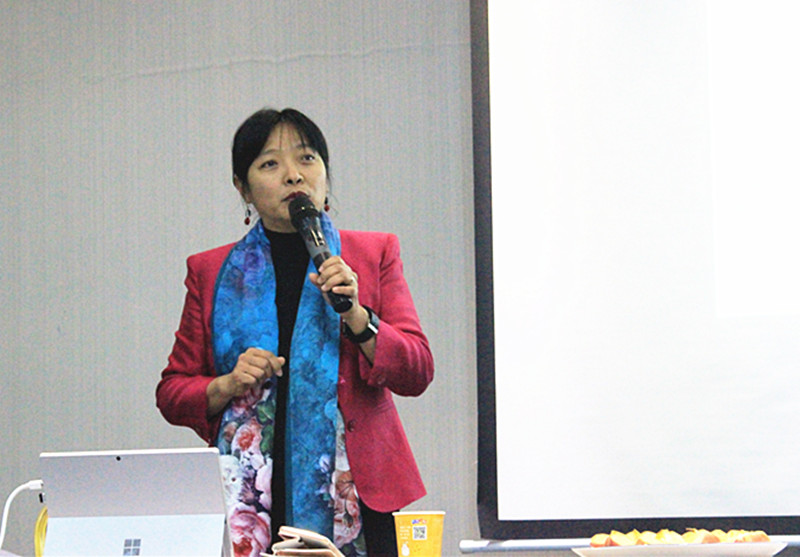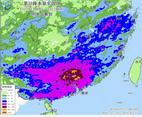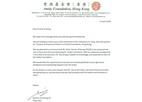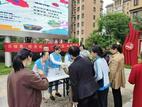Each family had several children in the 1950s due to traditional ideas about procreation and the proverb "many hands make light work." Since the economy has grown and steadied, however, children have become the center of the family. Parents put more time and energy into their children' education. There are also books and videos emerged about parenting over the years.
Educating children is not easy. Joyce Meyer, a famous Bible teacher from the US, once said in a message that parenting is so hard that she would sometimes rather leave her children outside playing than discipline them.
"The Chinese parents' focus is all on the children; how to discipline and change them. But when I took classes on family education in the US, I learned to focus on the parents. Specifically, how to be good parents instead of how to discipline your children," said Yiwen Caroline Chen Huang, a mother of four and Master's of education at Harvard Graduate School of Education, at a parenting class in Hangzhou.
The responsibility of education is on the parents
At the beginning of the class, Huang asked the question "How do we become better parents?"
To answer, one must first understand the definition of "educate," which is "to develop mentally, morally, or aesthetically especially by instruction" in the first US dictionary. The guidance and discipline are key in enlightening and teaching children to modify ill tempers and develop good attitudes and habits when young so that they can be truly useful in their careers.
Different from today's, this definition is specifically focused on enlightenment and modifying ill tempers. Nowadays parents emphasize getting children into good school, including a key middle school and university, and good jobs. Educational responsibilities seem to end there for parents, but most parents do not consider why a god job is so important, whether it is for greater benefits, being famous, or so the child will be useful and contribute to society.
According to Huang, "The responsibility should be on the parents." Most people do not look at themselves when they hear their children are not doing well in school, but o blame the teachers and classmates. If a child has later academic problems or other issues, it will mean that the parents did not do a good job of educating him or her. Huang said that many of her philosophies on parenting come from the Bible. She remembers the truths and lives them out.
Many parents are anxious in parenting and worry that the children aren't learning enough or that they might fall behind. Parents also anxiously make plans for the child, but despite these the child frequently doesn't live the life they planned. Parents seem to put in much time, energy, and money, but their children are still not successful. "We can't accept that their failure is ours," she said, adding "We are sadder when our children are criticized. It's worse to see other well behaved children with good scores if our children are not the same. That's why there is a term in China: 'trophy child.' How can we eliminate this anxiety when comparing our children to others?"
Children are not the private properties of their parents
"Children are not our private properties. Their gifts from God," said Huang. "Even if we cannot accept their failures, we must provide our children with a strong and stretchy 'safety net' of love."
This idea is taken from the net used in a circus by tightrope walkers. If they fall from a great height, the net is there to catch them. It must be stretchy and strong so that the person does not simply bounce out. Disciplining children is the same. There are strengths, rules, and restraints, but also love to hold them and flexibility in the rules so they don't simply bounce out. Huang said "We need to give children strong, reliable, and encompassing love." Love and discipline are essential to mastering the responsibility of parenting.
The challenge most parents face is that they can't balance love and discipline. They are afraid the children will be depressed if they discipline too much, or they will be spoiled with too much love. That's why some parents play "good cop/bad cop," with one to love and another to discipline. They think this is balanced. "Love and discipline are abilities every parent should have, and they can't be balanced," said Huang. "Love is like a vessel. The bigger your love is, the more discipline it holds. So, love comes before discipline, and without love there cannot be discipline. The issue isn't balance, but order."
Don't look at others: Think of a jar with cracks in order to appreciate children.
Second, in order not to compare them to others, we must accept a jar with cracks. No one is perfect, and like a jar with cracks. But even in this imperfect life there is a bright side. "It's the same with children. One might be active and expressive. This can be viewed as a good quality, but maybe the child is good at greeting others because of the outgoing personality and can still run around even in a quiet situation. A child who is quiet, and prefers thinking and reading may be too shy to greet other people, and the parents think this is bad. Parents can forget about strengths if they focus on shortcomings."
"We need to view our children as jars with cracks, and we need to find their strengths and appreciate them so that they can blossom and grow," Huang said. "Growth in children comes not from criticism but from discovery and encouragement."
Learn to develop the independent abilities of the child
Third, parents need to learn to let go. "Even though I'm a grandma now, I still have to learn to let go of my daughter," Huang said humorously. When she sees her daughter taking care of her granddaughter in new ways, she still wonders if they're good, but she still learns to respect her daughter. "It's a lifelong class, learning to let go," Huang said firmly.
The first thing to acknowledge in the class is that parents can't always be there for children, and not to dodge the possibility of death. This is why parents need to teach their children to be independent and love those around them. This is the second part of teaching children to develop their abilities and take care of themselves. This means that they can solve problems themselves even when parents aren't around. Children are like arrows which the parents must one day shoot, but if parents never practice the arrow will not hit the target. It could instead be far from it. Parents practice every day while raising their children, taking each opportunity to teach them to make the right choices.
(To be continued.)
Translated by: Grace Hubl











